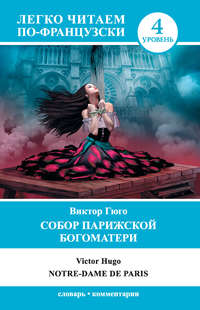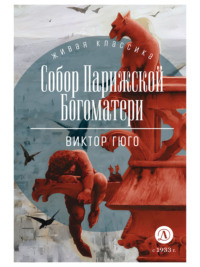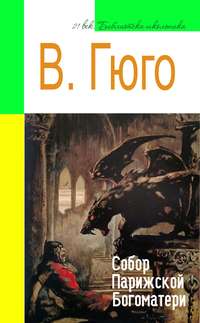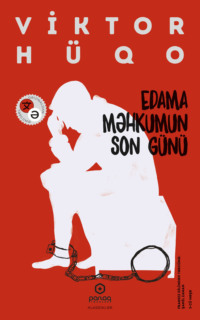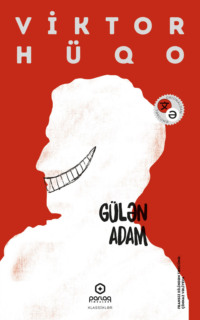 полная версия
полная версияThe Memoirs of Victor Hugo
December 23. – Henri Rochefort came to dine with me. I had not seen him since August of last year, when we were in Brussels. Georges did not recognise his godfather. I was very cordial. I like him very much. He has great talent and great courage. The dinner was a very merry one, although we are all threatened with incarceration in a Prussian fortress if Paris is captured. After Guernsey, Spandau. So be it.
I bought for 19 francs at the Magasins du Louvre a soldier’s cape with hood, to wear on the ramparts.
My house continues to be crowded with visitors. To-day a painter named Le Genissel called. He reminded me that I saved him from the galleys in 1848. He was one of the insurgents of June.
Heavy cannonade during the night. A battle is in preparation.
December 24. – It is freezing. Ice floes are floating down the Seine.
Paris only eats brown bread now.
December 25. – Heavy cannonade all night.
An item of news of present-day Paris: A basket of oysters has just reached the city. It sold for 750 francs.
At a bazar in aid of the poor at which Alice and Mme. Meurice acted as vendors, a young turkey fetched 250 francs.
The Seine is freezing over.
December 26. – Louis Blanc called, then M. Floquet. They urge me to summon the Government to do something or resign. Again I refuse.
M. Louis Koch paid 25 francs for a copy of the Rappel at the bazar in aid of the poor. The copy of Les Châtiments was purchased by M. Cernuschi for 300 francs.
December 27. – Violent cannonade this morning. The firing of this morning was an attack by the Prussians. A good sign. Waiting annoys them. Us, too. They threw nineteen shells, which killed nobody, into the Fort of Montrouge.
Mme. Ugalde dined with us and sang “Patria.” I escorted Mme. Ugalde to her home in the Rue de Chabanais, then returned to bed.
The concierge said to me:
“Monsieur, they say that bombs will fall in this neighbourhood to-night.”
“That is all right,” I replied. “I am expecting one.”
December 29. – Heavy firing all night. The Prussians continue their attack.
Théophile Gautier has a horse. This horse was requisitioned. It was wanted for food. Gautier wrote me begging me save the animal. I asked the Minister to grant his request.
I saved the horse.
It is unfortunately true that Dumas is dead. This has been ascertained through the German newspapers. He died on December 5 at the home of his son at Puys, near Dieppe.
I am being urged more strongly than ever, to enter the Government. The Minister of Justice, M. Emmanuel Arago, called and stopped to dinner. We talked. Louis Blanc dropped in after dinner. I persist in my refusal.
Besides Emmanuel Arago and the friends who usually dine with me on Thursdays, Rochefort and Blum came. I invited them to come every Thursday if we have many more Thursdays to live. At desert I drank Rochefort’s health.
The cannonade is increasing. The plateau of Avron had to be evacuated.
December 31. – D’Alton-Shée paid a visit to me this morning. It appears that General Ducros wants to see me.
Within three days the Prussians have sent us 12,000 shells.
Yesterday I ate some rat, and then hiccoughed the following quatrain:
O mesdames les hétaires Dans vos greniers, je me nourris: Moi qui mourais de vos sourires, Je vais vivre de vos souris.
After next week there will be no more washing done in Paris, because there is no more coal.
Lieutenant Farcy, commander of the gunboat, dined with me.
It is bitterly cold. For three days I have worn my cloak and hood whenever I have had to go out.
A doll for little Jeanne. A basketful of toys for Georges.
Shells have begun to demolish the Fort of Rosny. The first shell has fallen in the city itself. The Prussians to-day fired 6,000 shells at us.
In the Fort of Rosny a sailor working at the gabions was carrying a sack of earth. A shell knocked it off his shoulder. “Much obliged,” commented the sailor, “but I wasn’t tired.”
Alexandre Dumas died on December 5. On looking over my notebook I see that it was on December 5 that a large hearse with an “H” on it passed before me in the Rue Frochot.
We have no longer even horse to eat. *Perhaps* it is dog? *Maybe* it is rat? I am beginning to suffer from pains in the stomach. We are eating the unknown!
M. Valois, representing the Société des Gens de Lettres, came to ask me what was to be done with the 3,000 francs remaining from the proceeds of the three readings of Les Châtiments, the guns having been delivered and paid for. I told him that I wanted the whole amount turned over to Mme. Jules Simon for the fund for the victims of the war.
January 1, 1871. – Louis Blanc has addressed to me through the newspapers a letter upon the situation.
Stupor and amazement of little Georges and little Jeanne at their basketful of New Year presents. The toys, when unpacked from the basket, covered a large table. The children touched all of them and did not know which to take. Georges was nearly furious with joy. Charles remarked: “It is the despair of joy!”
I am hungry. I am cold. So much the better. I suffer what the people are suffering.
Decidedly horse is not good for me. Yet I ate some. It gives me the gripes. I avenged myself at dessert with the following distich:
Mon diner m’inquiete et même me harcêle, J’ai mange du cheval et je songe a la selle.
The Prussians are bombarding Saint Denis.
January 2. – Daumier and Louis Blanc lunched with us.
Louis Koch gave to his aunt as a New Year gift a couple of cabbages and a brace of living partridges!
This morning we lunched on wine soup. The elephant at the Jardin des Plantes has been slaughtered. He wept. He will be eaten..
The Prussians continue to send us 6,000 bombs a day.
January 3. – The heating of two rooms at the Pavillon de Rohan now costs 10 francs a day.
The Mountaineers’ club again demands that Louis Blanc and I be added to the Government in order to direct it. I continue to refuse.
There are at present twelve members of the French Academy in Paris, among them Ségur, Mignet, Dufaure, d’Haussonville, Legouvé, Cuvillier-Fleury, Barbier and Vitet.
Moon. Intense cold. The Prussians bombarded Saint Denis all night.
From Tuesday to Sunday the Prussians hurled 25,000 projectiles at us. It required 220 railway trucks to transport them. Each shot costs 60 francs; total, 1,500,000 francs. The damage to the forts is estimated at 1,400 francs. About ten men have been killed. Each of our dead cost the Prussians 150,000 francs.
January 5. – The bombardment is becoming heavier. Issy and Vanves are being shelled.
There is no coal. Clothes cannot be washed because they cannot be dried. My washerwoman sent this message to me through Mariette:
“If M. Victor Hugo, who is so powerful, would ask the Government to give me a little coal-dust, I could wash his shirts.”
Besides my usual Thursday guests I had Louis Blanc, Rochefort and Paul de Saint Victor to dinner. Mme. Jules Simon sent me a Gruyère cheese. An extraordinary luxury, this. We were thirteen at table.
January 6. – At dessert yesterday I offered some bonbons to the ladies, saying as I did so:
Grace a Boissier, chêre colombes, Heureux, a vos pieds nous tombons. Car on prend les forts par les bombes Et les faibles par les bonbons.
The Parisians out of curiosity visit the bombarded districts. They go to see the shells fall as they would go to a fireworks display. National Guards have to keep the people back. The Prussians are firing on the hospitals. They are bombarding Val-de-Grâce. Their shells set fire to the wooden booths in the Luxembourg, which were full of sick and wounded men, who had to be transported, undressed and wrapped up as well as they could be, to the Charité Hospital. Barbieux saw them arrive there about 1 o’clock in the morning.
Sixteen streets have already been hit by shells.
January 7. – The Rue des Feuillantines, which runs through the place where the garden of my boyhood used to be, is heavily bombarded. I was nearly struck by a shell there.
My washerwoman having nothing to make a fire with, and being obliged to refuse work in consequence, addressed a demand to M. Clémenceau, Mayor of the Ninth Arrondissement, for some coal, which she said she was prepared to pay for. I endorsed it thus:
“I am resigned to everything for the defence of Paris, to die of hunger and cold, and even to forego a change of shirt. However, I commend my laundress to the Mayor of the Ninth Arrondissement.”
And I signed my name. The Mayor gave her the coal.
January 8. – Camille Pelletan brought us good news from the Government. Rouen and Dijon retaken, Garibaldi victorious at Nuits, and Fraidherbe at Bapaume. All goes well.
We had brown bread, now we have black bread. Everybody fares alike. It is well.
The news of yesterday was brought by two pigeons.
A shell killed five children in a school in the Rue de Vaugirard.
The performances and readings of Les Châtiments have had to be stopped, the theatres being without gas or coal, therefore without light or heat.
Prim is dead. He was shot and killed at Madrid the day the king after his own heart, Amedeus, Duke of Genoa, entered Spain.
The bombardment was a furious one to-day. A shell crashed through the chapel of the Virgin at Saint Sulpice, where my mother’s funeral took place and where I was married.
January 10. – Bombs on the Odéon Theatre.
Chifflard sent me a piece of a shell. This shell, which fell at Auteuil, is marked with an “H.” I will have an inkstand made out of it.
January 12. – The Pavilion de Rohan demands of me from to-day on 8 francs a head for dinner, which with wine, coffee, fire, etc., brings the cost of dinner up to 13 francs for each person.
We had elephant steak for luncheon to-day.
Schoelcher, Rochefort, Blum and all the usual Thursday guests dined with us. After dinner Louis Blanc and Pelletan dropped in.
January 13. – An egg costs 2 francs 75 centimes. Elephant meat costs 40 francs a pound. A sack of onions costs 800 francs.
The Société des Gens de Lettres asked me to attend the presentation of the cannon to the city at the Hotel de Ville. I begged to be excused. I will not go.
We spent the day looking for another hotel. Could not find one suitable. All are closed. Expenses for the week at the Pavilion de Rohan (including the cost of a broken window-pane), 701 francs 50 centimes.
Remark by a poor woman anent some newly felled wood:
“This hapless green wood is under fire; it didn’t expect that it would have to face it, and weeps all the time!”
January 15. – A furious bombardment is in progress.
I have written a piece of poetry entitled “Dans le Cirque.” After dinner I read it to my Sunday guests. They want me to publish it. I will give it to the newspapers.
January 17. – The bombardment has been going on for three nights and three days without cessation.
Little Jeanne was cross with me because I would not let her play with the works of my watch.
All the newspapers publish my verses “Dans le Cirque.” They may be useful.
Louis Blanc called this morning. He urged me to join with Quinet and himself in bringing pressure to bear upon the Government. I replied: “I see more danger in overturning the Government than in supporting it.”
January 18. – M. Krupp is making cannon for use specially against balloons.
There is a cock in my little garden. Yesterday Louis Blanc lunched with us. The cock crowed. Louis Blanc paused and said:
“Listen!”
“What is it?”
“A cock is crowing.”
“Well, what of it?”
“Don’t you hear what it says?”
“It is calling: ‘Victor Hugo!’”
We listened and laughed. Louis Blanc was right It did sound as if the cock were crowing my name.
I gave some of my bread-crumbs to the fowls. They would not eat them.
This morning a sortie against Montretout was made. Montretout was taken. This evening the Prussians captured it from us again.
January 20. – The attack on Montretout has interrupted the bombardment.
A child of fourteen years was suffocated in a crowd outside a baker’s shop.
January 21. – Louis Blanc came to see me. We held a council. The situation is becoming extreme and supreme. The Mairie of Paris asks my advice.
Louis Blanc dined with us. After dinner we held a sort of council at which Colonel Laussedat was present.
January 22. – The Prussians are bombarding Saint Denis.
Tumultuous demonstrations at the Hotel de Ville. Trochu is withdrawing. Rostan comes to tell me that the Breton mobiles are firing on the people. I doubt it. I will go myself, if necessary.
I have just returned. There was a simultaneous attack by both sides. To the combatants who consulted me I said: “I recognise in the hands of Frenchmen only those rifles which are turned towards the Prussians.”
Rostan said to me:
“I have come to place my battalion at your service. We are five hundred men. Where do you want us to go?”
“Where are you now?” I asked.
“We have been massed towards Saint Denis, which is being bombarded,” he replied. “We are at La Villette.”
“Then stay there,” said I. “It is there where I should have sent you. Do not march against the Hotel de Ville, march against Prussia.”
January 23. – Last night there was a conference at my quarters. In addition to my Sunday guests Rochefort and his secretary, Mourot, had dined with us. Rey and Gambon came in the evening. They brought me, the former with a request that I would subscribe to it, Ledru-Rollin’s poster-programme (group of 200 members), and the latter, the programme of the Republican Union (50 members). I declared that I approved of neither the one nor the other.
Chanzy has been beaten. Bourbaki has succeeded. But he is not marching on Paris. Enigma, of which I fancy I can half guess the secret.
There appears to be an interruption to the bombardment.
January 24. – Flourens called this morning. He asked for my advice. I responded: “No violent pressure on the situation.”
January 25. – Flourens is reported to have been arrested as he was leaving the house after his visit to me.
I had a couple of fresh eggs cooked for Georges and Jeanne.
M. Dorian came to the Pavilion de Rohan this morning to see my sons. He announced that capitulation is imminent. Frightful news from outside. Chanzy defeated, Faidherbe defeated, Bourbaki driven back.
January 27. – Schoelcher came to tell me that he has resigned as colonel of the artillery legion.
Again they came to ask me to head a demonstration against the Hotel de Ville. All sorts of rumours are in circulation. To everybody I counsel calmness and unity.
January 28. – Bismarck in the course of the pourparlers at Versailles said to Jules Favre: “What do you think of that goose of an Empress proposing peace to me!”
It has become cold again.
Ledru-Rollin (through Brives) says he wants to come to an understanding with me.
Little Jeanne is unwell. Sweet little thing!
Leopold told me this evening that I was the subject of a dialogue between Pope Pius IX. and Jules Hugo, my nephew, brother of Leopold, who died a camerico of the Pope. The Pope, on seeing Jules, said to him:
“You name is Hugo, is it not?”
“Yes, Holy Father.”
“Are you a relative of Victor Hugo?”
“His nephew, Holy Father.”
“How old is he?” (It was in 1857.)
“Fifty-five years.”
“Alas! he is too old to return to the Church!”
Charles tells me that Jules Simon and his two sons passed the night drawing up lists of possible candidates for the National Assembly.
Cernuschi is having himself naturalized a French citizen!
January 29. – The armistice was signed yesterday. It was published this morning. The National Assembly will be elected between February 5 and 18. Will meet on the 12th at Bordeaux.
Little Jeanne is a trifle better. She almost smiled at me.
No more balloons. The post. But unsealed letters. It snows. It freezes.
January 30. – Little Jeanne is still poorly and does not play.
Mlle. Périga brought me a fresh egg for Jeanne.
January 31. – Little Jeanne is still ill. She is suffering from a slight attack of catarrh of the stomach. Doctor Allix says it will last for another four or five days.
My nephew Leopold came to dine with us. He brought us some pickled oysters.
February 1. – Little Jeanne is better. She smiled at me.
February 2. – The Paris elections have been postponed to February 8.
Horsemeat continues to disagree with me. Pains in the stomach. Yesterday I said to Mme. Ernest Lefèvre, who was dining beside me:
De ces bons animaux la viande me fait mal. J’aime tant les chevaux que je hais le cheval.
February 4. – The weather is becoming milder.
A crowd of visitors this evening. Proclamation by Gambetta.
February 5. – The list of candidates of the Republican journals appeared this morning. I am at the head of the list.
Bancal is dead.
Little Jeanne this evening has recovered from her cold.
I entertained my usual Sunday guests. We had fish, butter and white bread for dinner.
February 6. – Bourbaki, defeated, has killed himself. A grand death.
Ledru-Rollin is drawing back from the Assembly. Louis Blanc came and read this news to me to-night.
February 7. – We had three or four cans of preserves which we ate to-day.
February 8. – To-day, elections for the National Assembly. Paul Meurice and I went to vote together in the Rue Clauzel.
After the capitulation had been signed, Bismarck, on leaving Jules Favre, entered the room where his two secretaries were awaiting him and said: “The beast is dead.”
I have put my papers in order in anticipation of my departure.
Little Jeanne is very merry.
February 11. – The counting of the votes progresses very slowly.
Our departure for Bordeaux has been put off to Monday the 13th.
February 12. – Yesterday, for the first time, I saw my boulevard. It is a rather large section of the old Boulevard Haussmann. “Boulevard Victor Hugo” is placarded on the Boulevard Haussmann at four or five street corners giving on to this boulevard.
The National Assembly opens to-day at Bordeaux. The result of the elections in Paris has not yet been determined and proclaimed.
While I have not yet been appointed, time presses, and I expect to leave for Bordeaux to-morrow. There will be nine of us, five masters and four servants, plus the two children. Louis Blanc wants to leave with us. We shall make the journey together.
In my hand-bag I shall take various important manuscripts and works that I have begun, among others, Paris Besieged and the poem “Grand Père.”
February 13. – Yesterday, before dinner, I read to my guests, M. and Mme. Paul Meurice, Vacquerie, Lockroy, M. and Mme. Ernest Lefevre, Louis Koch and Vilain (Rochefort and Victor did not arrive until the dinner hour), two pieces of poetry which will form part of Paris Besieged (“To Little Jeanne,” and “No, You will not Take Alsace and Lorraine”).
Pelleport brought me our nine passes. Not having yet been proclaimed a Representative, I wrote on mine: “Victor Hugo, proprietor,” as the Prussians require that the quality or profession of the holder of the pass be stated.
It was with a heavy heart that I quitted this morning the Avenue Frochot and the sweet hospitality that Paul Meurice had extended to me since my arrival in Paris on September 5.
THE ASSEMBLY AT BORDEAUX. EXTRACTS FROM NOTE-BOOKS
February 14. – Left yesterday at 12.10 P.M. Arrived at Etampes at 3.15. Wait of two hours, and luncheon.
After lunch we returned to our drawing-room car. A crowd surrounded it, kept back by a squad of Prussian soldiers. The crowd recognised me and shouted “Long live Victor Hugo!” I waved my hand out of window, and doffing my cap, shouted: “Long live France!” Whereupon a man with a white moustache, who somebody said was the Prussian commandant of Etampes, advanced towards me with a threatening air and said something to me in German that he no doubt intended to be terrible. Gazing steadily in turn at this Prussian and the crowd, I repeated in a louder voice: “Long live France’!” Thereat all the people shouted enthusiastically: “Long live France!” The fellow looked angry but said nothing. The Prussian soldiers did not move.
The journey was a rough, long and weary one. The drawing-room car was badly lighted and not heated. One feels the dilapidation of France in this wretched railway accommodation. At Vierzon we bought a pheasant, a chicken, and two bottles of wine for supper. Then we wrapped ourselves up in our rugs and cloaks and slept on the seats.
We arrived at Bordeaux at 1.30 this afternoon. We went in search of lodgings. We took a cab and drove from hotel to hotel. No room anywhere. I went to the Hotel de Ville and asked for information. I was told that there was an apartment to let at M. A. Porte’s, 13, Rue Saint Maur, near the public garden. We went there. Charles hired the apartment for 600 francs a month and paid half a month’s rent in advance. Then we started out in search of a lodging for us, but could not get one. At 7 o’clock we returned to the station to fetch our trunks, and not knowing where we should pass the night. We went back to the Rue Saint Maur, where Charles is, negotiated with the landlord and his brother, who had a couple of rooms at 37, Rue de la Course, hard by, and came to an arrangement at last.
Alice made this remark:
“The number 13 clings to us. We were thirteen at table every Thursday in January. We left Paris on February 13. There were thirteen of us in the railway carriage, counting Louis Blanc, M. Béchet and the two children. We are lodging at 13, Rue Saint Maur!”
February 15. – At 2 o’clock I went to the Assembly. When I came out again I found an immense crowd awaiting me in the great square. The people, and the National Guards who lined the approaches to the building, shouted: “Long live Victor Hugo!” I replied: “Long live the Republic! Long live France!” They repeated this double cry. Then the enthusiasm became delirium. It was a repetition of the ovation I met with on my arrival in Paris. I was moved to tears. I took refuge in a café at the corner of the square. I explained in a speech why I did not address the people, then I escaped – that is the word – in a carriage.
While the enthusiastic people shouted “Long live the Republic!” the members of the Assembly issued and filed past impassible, almost furious, and with their hats on, in the midst of the bare heads and the waving caps about me.
Visit from Representatives Le Flo, Rochefort, Locroy, Alfred Naquet, Emmanuel Arago, Rességuier, Floquot, Eugene Pelletan, and Noel Parfait.
I slept in my new lodging at 37, Rue de la Course.
February 16. – At the Assembly today the result of the Paris elections was proclaimed. Louis Blanc was first with 216,000 votes; then came myself with 214,000 votes, then Garibaldi with 200,000.
The ovation extended to me by the people yesterday is regarded by the Majority as an insult to it. Hence a great display of troops on the square outside (army, National Guard and cavalry). There was an incident in this connection before my arrival. The men of the Right demanded that the Assembly be protected. (Against whom? Against me?) The Left replied with the shout of: “Long live the Republic!”
When I was leaving I was notified that the crowd was waiting for me in the square. To escape the ovation I went out by a side door, but the people caught sight of me, and I was immediately surrounded by an immense crowd shouting: “Long live Victor Hugo!” I replied: “Long live the Republic!” Everybody, including the National Guards and soldiers of the line, took up the shout. I drove away in a carriage, which the people followed.
The Assembly to-day elected its committees. Dufaure proposes Thiers as chief of the executive power.
We dined at home for the first time. I had invited Louis Blanc, Schoelcher, Rochefort and Lockroy. Rochefort was unable to come. After dinner we went to Gent’s, Quay des Chartrons, to attend a meeting of the Left. My sons accompanied me. The question of the chief executive was discussed. I had the following added to the definition: appointed by the Assembly and revokable by that body.



